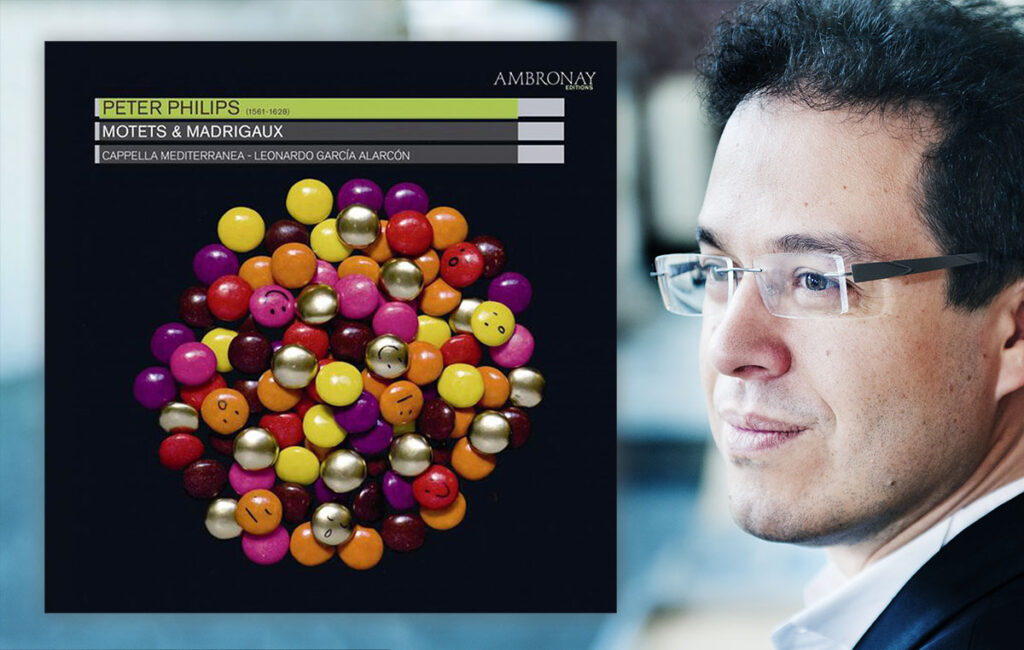


“Cappella Mediterranea goes beyond the notes with exemplary intelligence, style and taste.”
Philippe Venturini, November 2008, Le monde de la musique
“In order to do justice to Peter Philips’ music, I first had to force myself not to intellectualise this music so that I could instead convey sensations to the musicians. The aim was to allow them to develop a new perception of ‘consonant’ intervals and their function in madrigal rhetoric. I was surprised by how the lack of dissonances in Philips’ madrigals made me feel listless. But you can’t judge Piero della Francesca’s paintings with the criteria you would use to assess Titian work; in the same way, the musicians and I couldn’t interpret Peter Philips’ work with Monteverdi in our hearts. It was only once we had purged our aesthetic judgement and returned to the primitive bedrock of consonance that we could understand his music, which we are all passionate about now.
For this recording of Philips’ motets, I decided to double each voice with an instrument. The instrumentalists began intuitively modifying the melodic design of the original score without altering the fluidity of the line. While the singers generally increased the intensity of sound for expressivity, the instrumentalists instead did the opposition, reducing the quantity of notes according to the accentuation in the text.”
Leonardo García Alarcón
Cappella Mediterranea is particularly grateful to Stéphanie de Failly and the Clematis ensemble for making this recording possible.



